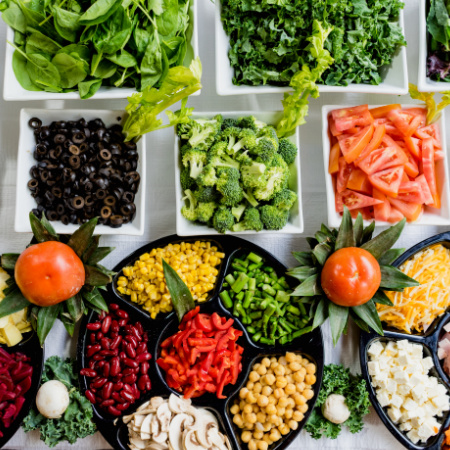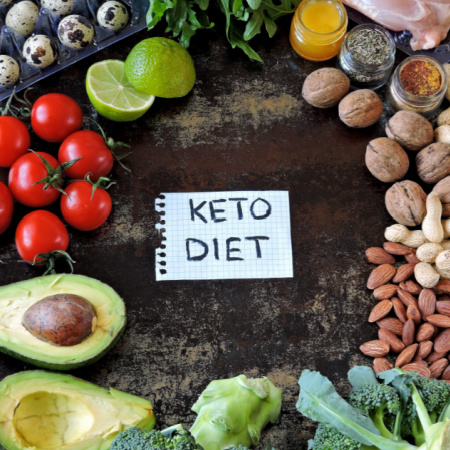- Reduce Your Sugar Intake with These TipsMar 11, 2024

Sugary foods are prevalent in our world. A staggering number of the packaged foods and beverages purchased by U.S. households contained added sugars. In addition, a large percentage of U.S. food supply products contain either caloric or low-calorie sweeteners.
With sugar being so prevalent in regularly purchased products, it may seem impossible to escape consuming high-sugar foods regularly, which can be problematic for your health. Experts say that eating foods with too much sugar can cause a host of issues.
So how can you reduce the amount of sugar you're eating? - Living with Type 2 Diabetes? Foods to Eat and Foods to AvoidOct 2, 2023

Healthy eating plays a significant role in whether you may develop type 2 diabetes — and a recently published study confirms that.
According to the study, a considerable rise in people living with type 2 diabetes globally directly results from poor diet. The study demonstrates just how essential it is to improve the quality of your food. If you have prediabetes or type 2 diabetes, changing your diet is critical to improving your health.
So, what should you be eating? - Simple Ways to Tell if Your Food is NutritiousMar 6, 2023

Proper nutrition is one of the most important ways to ensure you lead a healthy, happy, long life. In fact, studies show that eating a balanced diet plays a role in all sorts of things.
It can be challenging to know whether your food is nutritious. Labels can be confusing if you’re not a nutrition expert, and honestly, how many of us are? But don't stress! Check out our easy to follow beginner's guide to deciphering food labels. - Is Your Diet Really Healthy? 10 Quick Tips to Eat BetterNov 7, 2022

If you're incorporating plenty of fruits, vegetables, lean protein, complex carbs and whole grains into your diet, you probably think you're eating a well-rounded diet. There's a solid chance that may be true! But, a recent study published in the American Society for Nutrition found that many of us think our diet is healthier than it really is.
Thankfully, you can take control of your diet and ensure you're getting the proper nutrition that can support you in reaching your goals, and WE CAN HELP! - 6 Sneaky Foods That Are Derailing Your Keto DietOct 11, 2021

By now you’ve heard all about the keto diet — eat more meat and vegetables, avoid sugary foods and things like bread, and you’ll shed pounds, right?
That’s the general idea. In essence, a ketogenic diet is one that focuses on high-fat, high-protein foods in an effort to force the body to burn fat instead of carbs. Most experts recommend aiming to eat 30 net grams of carbs per day to maintain a proper keto diet.
Carbs have a way of sneaking into your daily meals. Do you know where they're hiding? - Junk Food Addiction Is a Thing - Here Are 6 Ways to Overcome It! Apr 19, 2021

If you’ve ever felt like you’re legitimately powerless to stop eating junk food, even that it’s a compulsion, you’re not alone.
The research suggests that not only do people gain weight when they eat copious amounts of junk food, but it may even change the chemical balance in their brains, causing them to feel compelled to eat it in a way similar to addiction. - Intermittent Fasting and the Keto Diet: The Perfect MatchSep 16, 2019

Intermittent fasting and the keto diet are all the rage these days. But what, exactly, are they — and how do they work well together? Explore both, their benefits and why the might just be the perfect pair for your successful weight loss.
- Portion-Controlled Meals (and why they are so much better than fast food) ExplainedMar 18, 2019

We live in a day and age of hectic routines, grinding it out for hours at work, rushing from place to place and trying desperately to find (and appreciate!) the down-time in between. Our to-do lists seem never-ending, and often it feels like there isn’t a minute to spare. What does all that mean for our eating habits?
- Keto Diet? Diet-to-Go's Carb30 Plan is the Perfect FitMar 12, 2018

Diet-to-Go’s Carb30 menu does it all for you. We make sure you get the proper balance of leafy green vegetables and protein-packed meats with tasty meals that will make it easy to stay on-track.




